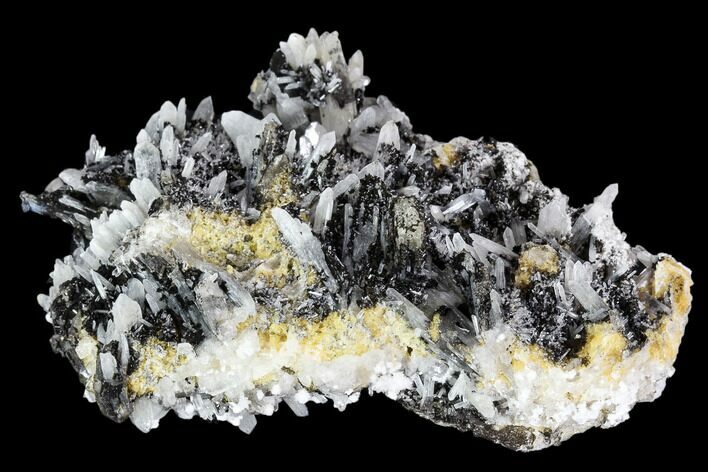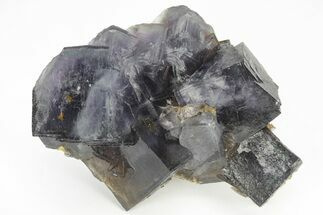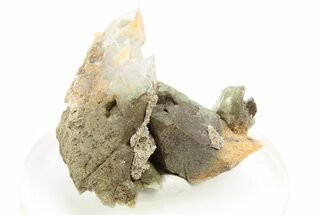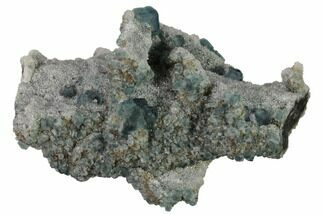This Specimen has been sold.
4.5" Quartz and White Aragonite Association - Pakistan
This is a cluster of quartz crystals that are peppered with white aragonite aggregations, collected from the Khuzdar District of Balochistan, Pakistan. This specimen comes with an acrylic display stand.
About Quartz
Quartz is the name given to silicon dioxide (SiO2) and is the second most abundant mineral in the Earth's crust. Quartz crystals generally grow in silica-rich environments--usually igneous rocks or hydrothermal environments like geothermal waters--at temperatures between 100°C and 450°C, and usually under very high pressure. In either case, crystals will precipitate as temperatures cool, just as ice gradually forms when water freezes. Quartz veins are formed when open fissures are filled with hot water during the closing stages of mountain formation: these veins can be hundreds of millions of years old.
Quartz is the name given to silicon dioxide (SiO2) and is the second most abundant mineral in the Earth's crust. Quartz crystals generally grow in silica-rich environments--usually igneous rocks or hydrothermal environments like geothermal waters--at temperatures between 100°C and 450°C, and usually under very high pressure. In either case, crystals will precipitate as temperatures cool, just as ice gradually forms when water freezes. Quartz veins are formed when open fissures are filled with hot water during the closing stages of mountain formation: these veins can be hundreds of millions of years old.
Aragonite is one of two common calcium carbonate (CaCO3) minerals: the other is calcite, of which aragonite forms as a pseudomorph. Its crystal lattice differs from calcite, resulting in a different crystal shape. It displays a translucent to white color when pure, and when impure can vary between yellow, green, pink, blue and brown. It typically forms in low-temperature hydrothermal veins, in hot springs, and as precipitates from chemicals in sedimentary rock. It can also form under biological processes: aragonite forms naturally in most mollusk shells, and as the calcareous endoskeleton most corals.
SPECIES
Quartz & Aragonite
LOCATION
Khuzdar District, Balochistan, Pakistan
SIZE
4.5" wide
CATEGORY
ITEM
#108045
 Reviews
Reviews













